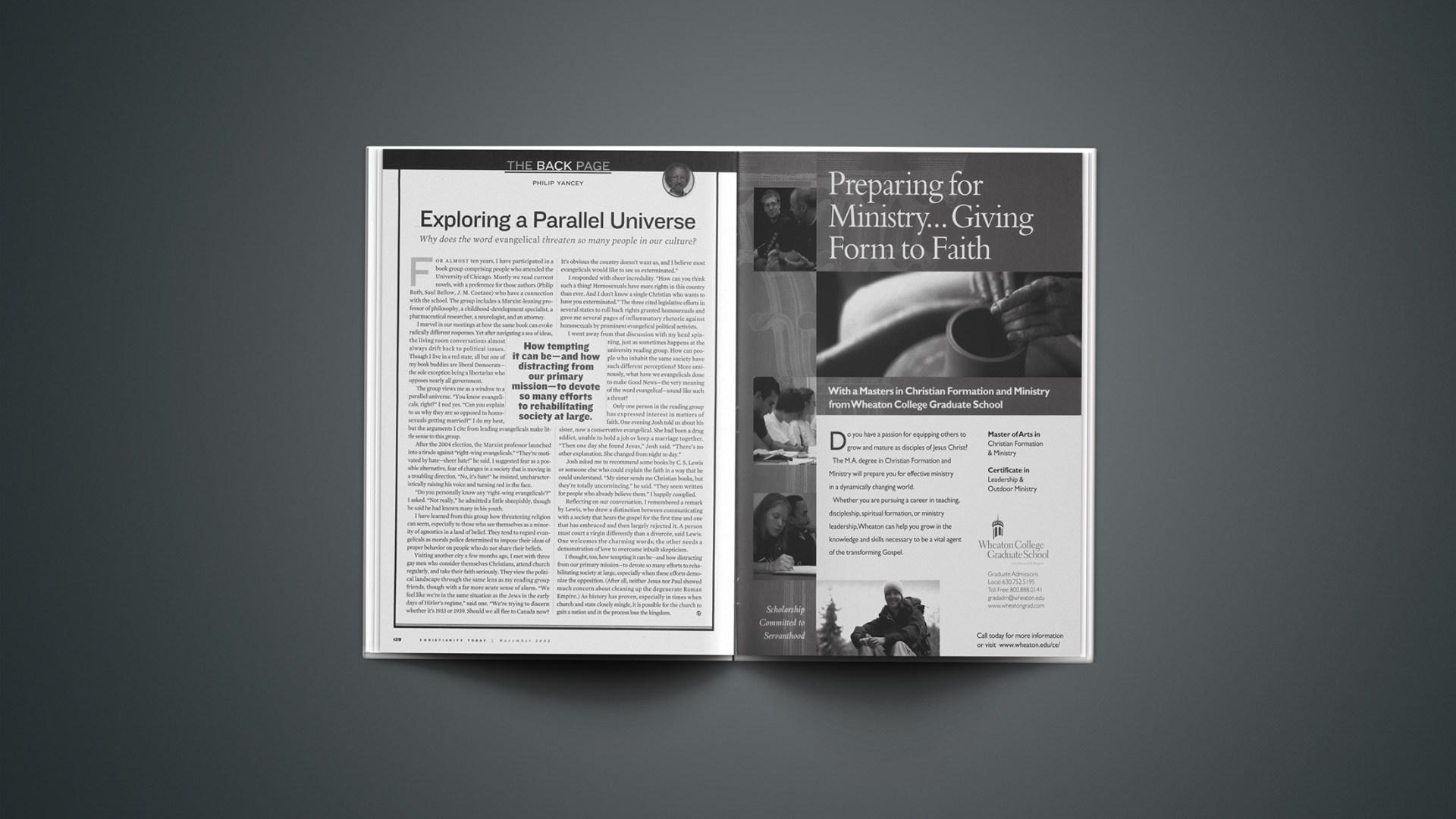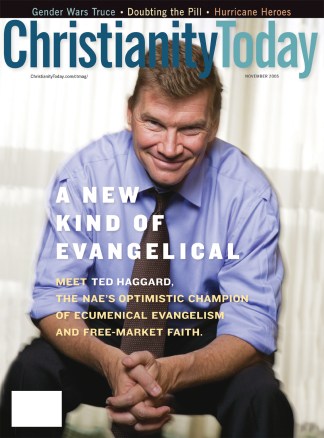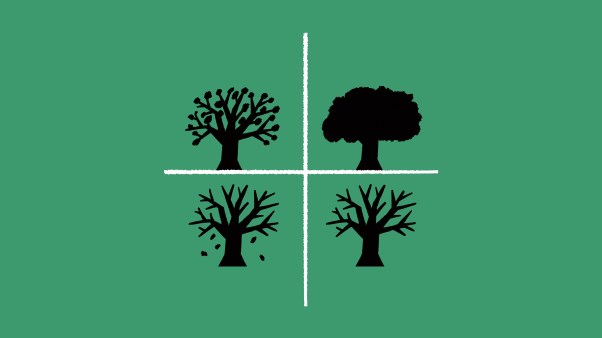For almost ten years, I have participated in a book group comprising people who attended the University of Chicago. Mostly we read current novels, with a preference for those authors (Philip Roth, Saul Bellow, J. M. Coetzee) who have a connection with the school. The group includes a Marxist-leaning professor of philosophy, a childhood-development specialist, a pharmaceutical researcher, a neurologist, and an attorney.
I marvel in our meetings at how the same book can evoke radically different responses. Yet after navigating a sea of ideas, the living room conversations almost always drift back to political issues. Though I live in a red state, all but one of my book buddies are liberal Democrats—the sole exception being a libertarian who opposes nearly all government.
The group views me as a window to a parallel universe. “You know evangelicals, right?” I nod yes. “Can you explain to us why they are so opposed to homosexuals getting married?” I do my best, but the arguments I cite from leading evangelicals make little sense to this group.
After the 2004 election, the Marxist professor launched into a tirade against “right-wing evangelicals.” “They’re motivated by hate—sheer hate!” he said. I suggested fear as a possible alternative, fear of changes in a society that is moving in a troubling direction. “No, it’s hate!” he insisted, uncharacteristically raising his voice and turning red in the face.
“Do you personally know any ‘right-wing evangelicals’?” I asked. “Not really,” he admitted a little sheepishly, though he said he had known many in his youth.
I have learned from this group how threatening religion can seem, especially to those who see themselves as a minority of agnostics in a land of belief. They tend to regard evangelicals as morals police determined to impose their ideas of proper behavior on people who do not share their beliefs.
Visiting another city a few months ago, I met with three gay men who consider themselves Christians, attend church regularly, and take their faith seriously. They view the political landscape through the same lens as my reading group friends, though with a far more acute sense of alarm. “We feel like we’re in the same situation as the Jews in the early days of Hitler’s regime,” said one. “We’re trying to discern whether it’s 1933 or 1939. Should we all flee to Canada now? It’s obvious the country doesn’t want us, and I believe most evangelicals would like to see us exterminated.”
I responded with sheer incredulity. “How can you think such a thing! Homosexuals have more rights in this country than ever. And I don’t know a single Christian who wants to have you exterminated.” The three cited legislative efforts in several states to roll back rights granted homosexuals and gave me several pages of inflammatory rhetoric against homosexuals by prominent evangelical political activists.
I went away from that discussion with my head spinning, just as sometimes happens at the university reading group. How can people who inhabit the same society have such different perceptions? More ominously, what have we evangelicals done to make Good News—the very meaning of the word evangelical—sound like such a threat?
Only one person in the reading group has expressed interest in matters of faith. One evening Josh told us about his sister, now a conservative evangelical. She had been a drug addict, unable to hold a job or keep a marriage together. “Then one day she found Jesus,” Josh said. “There’s no other explanation. She changed from night to day.”
Josh asked me to recommend some books by C. S. Lewis or someone else who could explain the faith in a way that he could understand. “My sister sends me Christian books, but they’re totally unconvincing,” he said. “They seem written for people who already believe them.” I happily complied.
Reflecting on our conversation, I remembered a remark by Lewis, who drew a distinction between communicating with a society that hears the gospel for the first time and one that has embraced and then largely rejected it. A person must court a virgin differently than a divorcée, said Lewis. One welcomes the charming words; the other needs a demonstration of love to overcome inbuilt skepticism.
I thought, too, how tempting it can be—and how distracting from our primary mission—to devote so many efforts to rehabilitating society at large, especially when these efforts demonize the opposition. (After all, neither Jesus nor Paul showed much concern about cleaning up the degenerate Roman Empire.) As history has proven, especially in times when church and state closely mingle, it is possible for the church to gain a nation and in the process lose the kingdom.
Copyright © 2005 Christianity Today. Click for reprint information.










